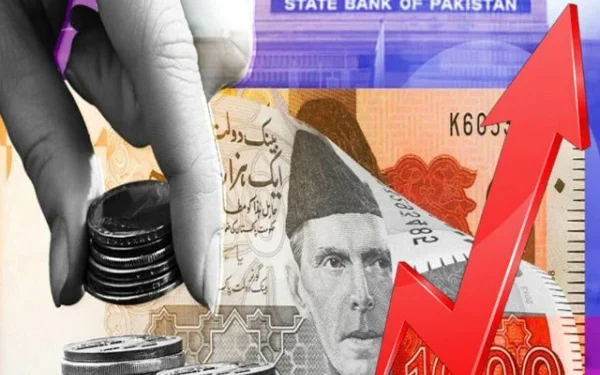Karachi: Pakistan’s current account balance has once again fallen into deficit, with a deficit of $420 million recorded in the current account balance in January, the highest deficit since June 2024.
This reflects the increasing burden of imports and foreign payments on the external account, while a surplus of $474 million was recorded in December 2024. However, with the help of high remittances, the current account has been in surplus of $682 million overall during the seven months of the current fiscal year, which is a remarkable performance.
The current account deficit during the same period of the previous fiscal year was $1,801 million. The current account deficit of $420 million in January 2025 is 4 percent higher on an annual basis. It was $404 million in January 2024. Exports of goods have seen an improvement of 10 percent on an annual basis, which has been $2.94 billion.
But imports of goods increased by 17 percent to $5.45 billion, which led to a trade deficit of 26 percent to $2.51 billion, which indicates pressure on the external account. Similarly, the balance of trade in services also remained in deficit, increasing by 10 percent on an annual basis to $315 million.
Exports of services remained at $691 million, while imports of services increased to $1.01 million, thus the overall trade and services deficit in January increased by 24 percent to $2.83 billion, compared to $2.27 billion in January 2024. The primary income balance was $735 million, a 12 percent deficit on an annual basis, but the increase in remittances helped improve the situation. In January, remittances increased by 25 percent to $3 billion.
The overall secondary income balance increased by 24 percent to $3.15 billion on an annual basis, with remittances and other private transfers playing a major role. Foreign direct investment in January was $194 million, showing a 15 percent increase on a monthly basis.
This shows an increase of $170 million in December. Experts say that the widening primary income deficit shows that the trend of repayment of foreign loans, interest payments, and transfer of profits by foreign investors is increasing, which is further increasing the pressure on the external account, which will further increase external debts, and the debt burden will increase.
If remittances and exports do not increase significantly, the primary income deficit will have an impact on the value of the currency and the value of the currency will decrease further, which will affect economic stability.

























